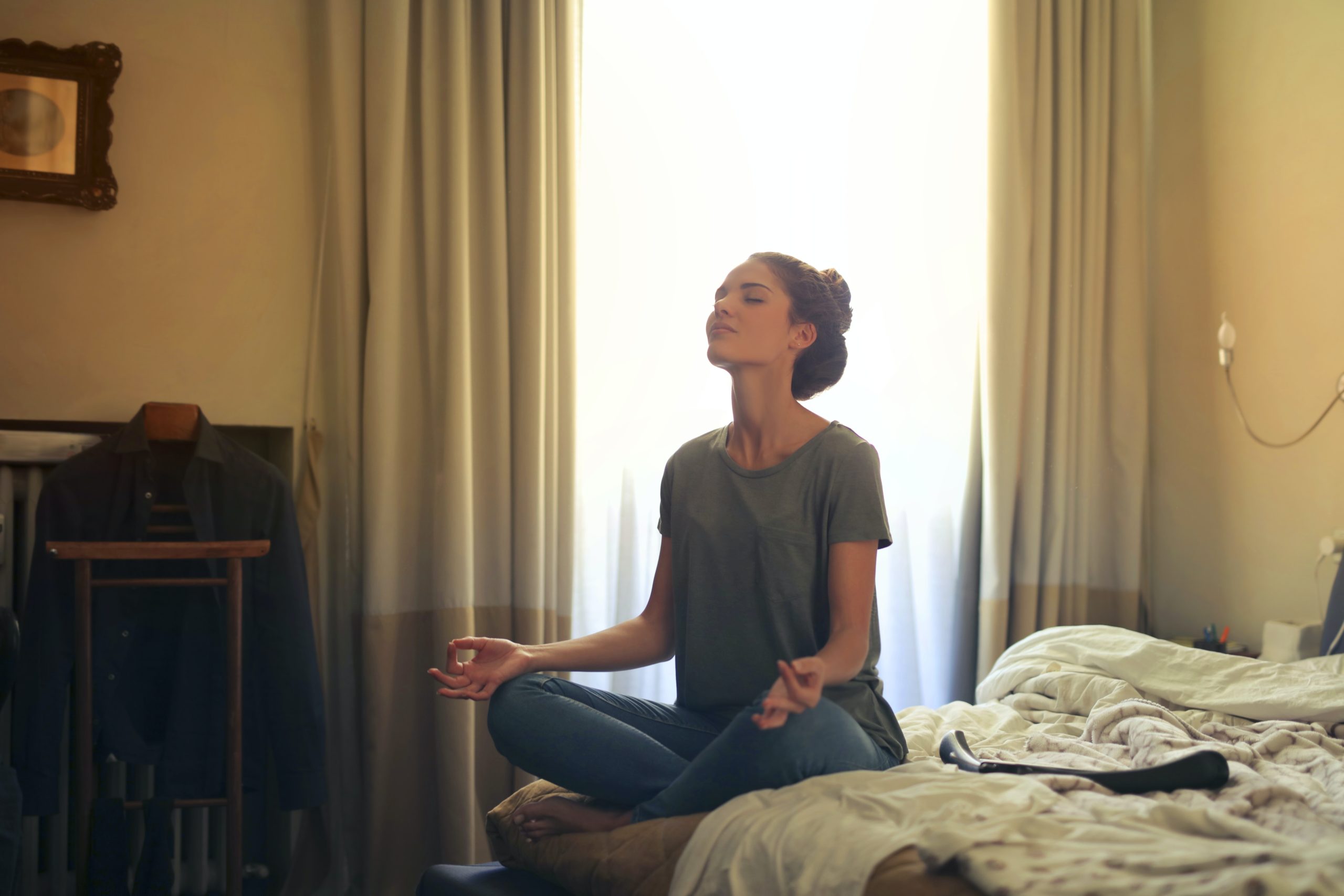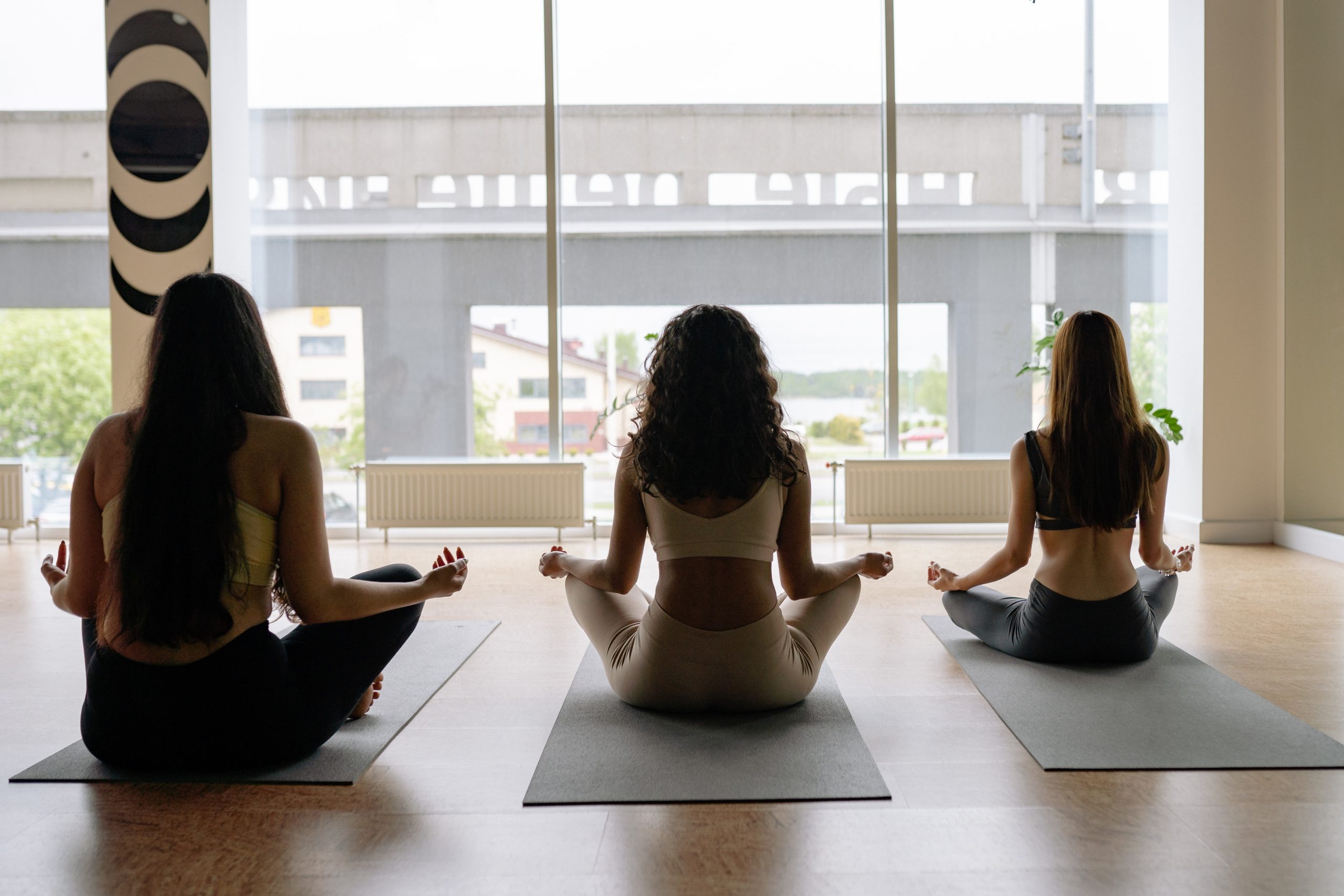
Many people meditate to feel calm and focused, reduce stress, and to cultivate inner peace. But a growing body of research reveals meditation may have a larger role to play in our lives. When done in a regular and intense way, studies show that meditation can enhance the immune system, and fend off unwanted health problems.
Let’s take a glimpse of some of these studies, and find out what has got scientists, even the most sceptic ones, fascinated. By taking a look at the molecular mechanisms at work, they saw profound immunological differences pre and post-meditation.

An intense meditation retreat
For eight straight days, the participants at the Isha Institute of Inner Sciences advanced retreat program followed a strict regimen. They meditated for ten hours a day, ate a vegan diet, maintained consistent sleep and wake up schedules, and were required to keep silent.
It was the perfect setting for a neuroscientist, University of Florida’s Vijayendran Chandran, to conduct a controlled experiment, where all the variables were the same.
Dr. Chandran himself walked the talk. Prior to the retreat, he went through his own 48-day program that included 20 minutes of meditation every day. The experience, said Dr. Chadran, left him feeling clearer and focused.
106 participants, both men and women, average age 40, agreed to take part in the experiment. Their blood samples were drawn five to eight weeks prior to the retreat, just before the retreat began, and three months after the retreat was completed.
The result: Chandran and his co-authors found that meditation activated genes associated with the immune system. They found an uptick in activity among 220 immune-related genes, including 68 genes associated with anti-virus and anti-cancer responses. In addition, there was a COVID-19 connection.
“While meditation boosted activity in the 68 anti-viral genes (interferon signaling), comparing the patients with severe COVID-19 showed the opposite trend—the levels of these anti-viral genes were significantly reduced,” Dr. Chandran said.
Interestingly, Dr. Chandran and his team noted that these genes continued to be active three months after the retreat was concluded, which points to longer-lasting beneficial effects of meditation.
“These findings could have potential implications for many immune-related conditions, including COVID-19 and multiple sclerosis, as it was found that meditation produced beneficial gene activity comparable to conventional treatments given to multiple sclerosis patients,” Dr. Chandran enthused.

Vacationers versus Meditators
In a similar study, 94 women were invited to come to the Chopra Center for Well Being in California. Half of the women went for a six-day vacation retreat, while the other half took part in a six-day meditation retreat.
This was the setting of an experiment conducted by researchers from the Icahn School of Medicine, the University of California, and Harvard Medical School, to assess the biological impact of meditation compared to vacation.
In addition, they also invited a third group composed of 30 experienced meditators.
In the similar fashion as Dr. Chandran’s experiment, the women’s blood samples were drawn as well, before the retreat, right after the retreat, and 10 months later.
Can you guess what they discovered? Similarly, they found 200,000 genes experienced a significant change in their molecular mechanisms, among all three control groups—the novice meditators, vacationers, and experienced meditators.
The most notable changes in gene activity were related to stress response, immune function, and inflammation.
There was a positive shift in genes related to fighting viral infection for the experienced meditators.
For the novice meditators, their amyloid-beta proteins, which are linked to depression and dementia, shifted into a better ratio.
As for the meditators and vacationers, both reported reduction in stress and enhanced immune function. But here’s an interesting finding: compared to the non-meditating vacationers, the novice meditators reaped higher benefits: less stress and fewer symptoms of depression.
“Based on our results, the benefit we experience from meditation isn’t strictly psychological; there is a clear and quantifiable change in how our bodies function,” said Rudolph Tanzi, who holds positions both at Harvard University and Massachusetts General Hospital.
“Meditation is one of the ways to engage in restorative activities that may provide relief for our immune systems, easing the day-to-day stress of a body constantly trying to protect itself,” Dr. Tanzi explained, adding that these findings precisely show that meditation can lead to healthier aging.
“Touch your inner space, which is nothingness, as silent and empty as the sky; it is your inner sky. Once you settle down in your inner sky, you have come home, and a great maturity arises in your actions, in your behavior. Then whatever you do has grace in it. Then whatever you do is a poetry in itself. You live poetry; your walking becomes dancing, your silence becomes music.”
-Osho

What the studies are telling us
Ultimately, setting aside the immune responses and activated genes, what we can glean from this topic is the importance of taking a break.
By break, we don’t mean falling asleep, or taking naps (but those are important too!) Our immune systems are on-the-clock, 24 hours a day, seven days a week, so they need a breather, especially from stressful situations.
Here’s a helpful way to look at it.
We have two complementary nervous systems: the parasympathetic nervous system, and the sympathetic nervous system. The former is the “rest system,” when our bodies are focused on resting, digesting, and repairing itself. Ideally, you use more of this system.
The sympathetic nervous system, on the other hand, is the one that’s activated when we’re stressed, or on a “fight or flight” situation. You detect a threat in your environment, causing your heart to race, making you want to return to safety. It’s also the system that will get you out of trouble. Ideally, this happens on occasion only, or at least, not more than the rest system.
Unfortunately, with social media, the hustle culture, and over-stimulation, we often find ourselves in “fight or flight” mode. When this happens constantly, day in and day out, we don’t give our bodies time to rest and repair itself.
As a result, the immune system and its responses suffer.

Meditation breaks the stress cycle
Through meditation, we not only check in on ourselves, and attain relaxation, we are essentially giving our immune systems pockets of rest and recreation, which it needs to repair itself from the times we were stressed.
Through meditation, we are able to let our immune systems do its job well.
While the studies included above took meditation to the extreme (I mean, let’s face it, who has time to meditate 10 hours a day?), there is reason to believe we can still benefit from meditating a few hours, or minutes at a time every day.
Starting and maintaining a meditative practice will help you attain a more robust immune system, setting you up to a long and healthy life.
Tags



0 Comments